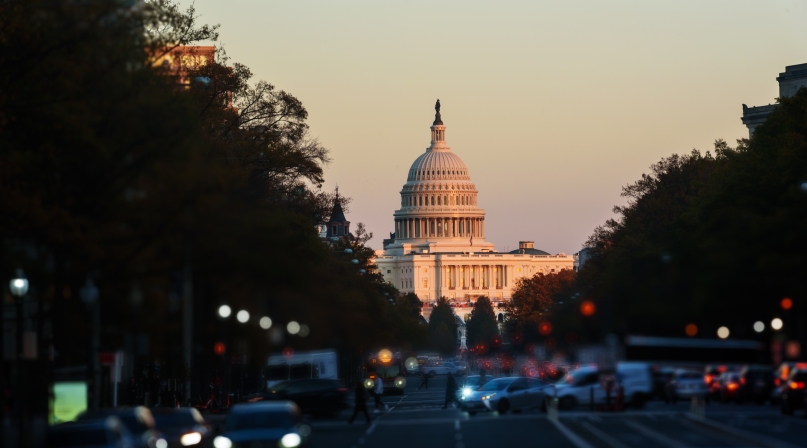President Trump signs Laken Riley Act into law
Author

Julia Cortina
Upcoming Events
Related News

Key Takeaways
On January 29, President Trump signed the bipartisan Laken Riley Act (S.5/H.R. 29) into law, requiring the U.S. Department of Homeland Security (DHS) to detain any undocumented immigrant who has been arrested for violent or property-related crimes and giving states new authority to sue the federal government over certain immigration-related decisions.
How will this law impact mandatory detention?
S. 5/H.R. 29 expands the list of crimes that require Immigration and Customs Enforcement (ICE) to detain undocumented immigrants. Under existing law, undocumented immigrants who are accused, arrested or convicted of committing certain serious crimes are required to be detained by ICE. The new legislation expands this list to include property-related crimes such as theft and burglary, as well as assault on law enforcement. There are no exceptions for children. Depending on state and local ordinances, counties may be required to report these arrests to ICE.
What happens if a county reports an undocumented immigrant charged with a crime to ICE?
If a county reports an undocumented immigrant to ICE, the agency is now required to issue a detainer to the county and take the individual into federal custody. The legislation does not obligate counties to hold the individual until ICE arrives. In some cases, counties have faced legal challenges related to holding individuals under ICE detainers.
Existing law mandates detention for individuals accused or convicted of serious crimes, but ICE has stated that it lacks the resources to enforce these requirements adequately. In December, ICE issued a memo indicating that without additional funding, the agency may need to release individuals back into local communities if the Laken Riley Act is enacted. Additionally, local prosecutors may be unable to carry out criminal prosecutions of individuals who are taken into federal immigration custody.
How does this legislation impact states? What types of new authorities are granted to states?
The Laken Riley Act (S.5/H.R. 29) proposes changes to current Supreme Court precedent, granting state governments the ability to sue the federal government over certain immigration-related decisions. This includes providing states with standing to challenge changes in federal immigration enforcement priorities, such as decisions to focus on deportations of individuals convicted of violent crimes rather than those accused of lesser offenses. The legislation also allows states to pursue lawsuits regarding court-ordered visa bans for countries that do not accept repatriated individuals.
Advocacy
Changes enacted to federal immigration policies as Title 42 expires

Related News

Information-sharing bill could protect court workers
The Countering Threats and Attacks on Our Judges Act could provide more than 30,000 state and local judges with access to security assessments, best practices and a database of threats made against colleagues in the justice field.

After historic winter storms, counties assess response
Counties in states that rarely receive much winter weather are assessing their responses to the January storm that left many covered in snow and ice.

California counties fight agricultural crime
Sheriffs' offices and prosecutors in California's central valley make specific efforts to prevent and prosecute crimes against the agricultural community.